MercoPress. South Atlantic News Agency
Tag: Inflation
-
Tuesday, July 6th 2021 - 09:55 UTC
Uruguay's yearly inflation set at 7.33% after Monday's figures

Uruguay's yearly Consumer Price Index (CPI) was 7.33% as per data released Monday by the National Institute of Statistics (INE), slightly above the government's target.
-
Friday, June 18th 2021 - 09:35 UTC
Interest rates in Brazil need to stay high to contain 2022 inflation, former minister says
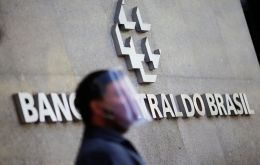
Former Brazilian Finance Minister Maílson da Nóbrega (Jan. 6 1988 - March 18, 1990) under President José Sarney has pointed out that the country needs to keep interest rates at a high level at least until the Selic rate reaches 6.5% per year.
-
Thursday, June 17th 2021 - 09:40 UTC
May's inflation in Argentina was 3.3%: What will happen after the elections?

Argentina's inflation in May was 3.3% for a year-on-year accumulation of 48.8%, the highest mark since March 2020, according to the National Institute of Statistics and Census (INDEC)
-
Saturday, May 29th 2021 - 09:16 UTC
Paraguay's Central Bank keeps interest rates at 0.75%; eyes 4% yearly inflation
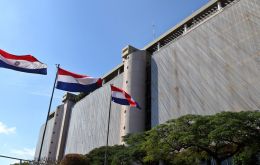
After a study through which it was determined that international factors remained favourable. Paraguay's Central Bank (BCP) Friday announced that its Monetary Policy Committee (CPM) unanimously decided to maintain the monetary policy interest rate at 0.75% annually.
-
Friday, May 28th 2021 - 09:31 UTC
Argentina: Bans on layoffs extended for 30 days
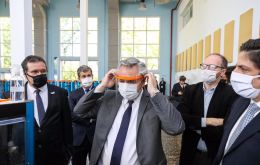
The Argentine Government of Alberto Fernández Thursday decided to extend a ban on layoffs for another 30 days so that workers who were affected by the recent full-scale quarantine decreed de the President does not result in workers losing their jobs, it was announced.
-
Tuesday, May 18th 2021 - 09:44 UTC
Argentina bans meat exports for 30 days in an attempt to curb inflation
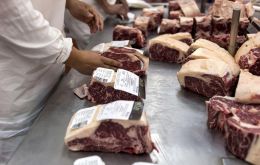
The Argentine government of President Alberto Fernández has announced all meat exports will be banned for the next 30 days in an attempt to slow down inflation as domestic prices went up 20% owing to foreign demand.
-
Friday, May 14th 2021 - 09:14 UTC
Argentine inflation for April set at 4.1%

Argentina's April inflation reached 4.1% for a cumulative rise of 17.6% in the first four months of 2021, the National Institute of Statistics and Censuses (INDEC) reported on Thursday.
-
Saturday, May 8th 2021 - 08:15 UTC
Argentina's inflation for the year 2021 forecast at 47.3%

Argentina's monthly inflation for April 2021 is expected to be around 3.8%, according to consulting firms surveyed by the Central Bank.
-
Thursday, May 6th 2021 - 09:33 UTC
Uruguay's inflation projected at 6.8% year on year fits within government’s target

Uruguay has managed to keep inflation at 6.8%, which is within the government's target range for the first time in 36 months, it was announced Wednesday.
-
Thursday, May 6th 2021 - 08:48 UTC
Brazil's Central Bank ups basic interest rate to curb growing inflation
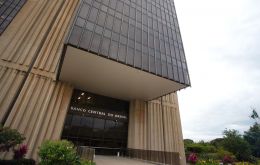
In a move to curb growing inflation, Brazil's Central Bank Wednesday decided to raise the basic interest rate by 0.75 percentage points, to 3.5% per year. It was the second time in a row that the monetary authorities responded to this type of measure.
